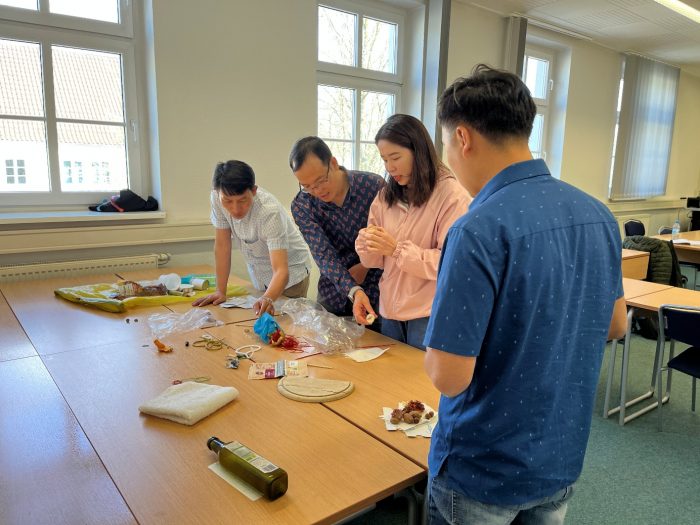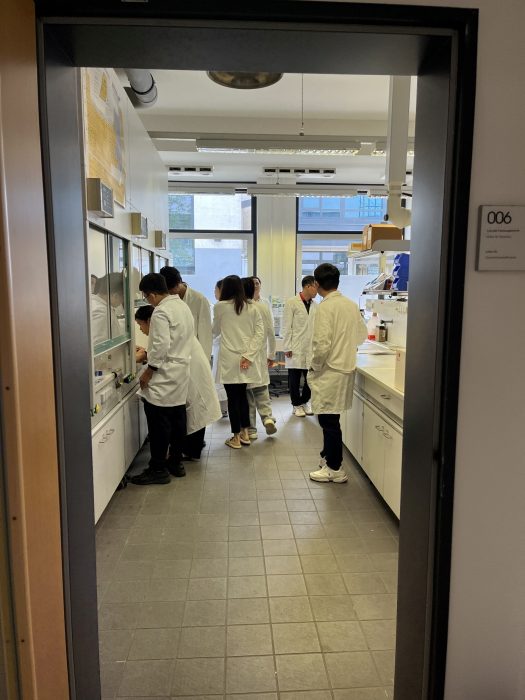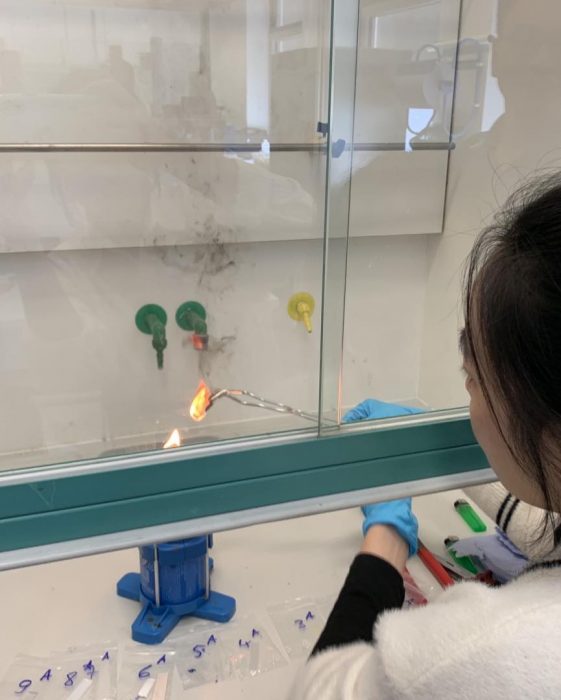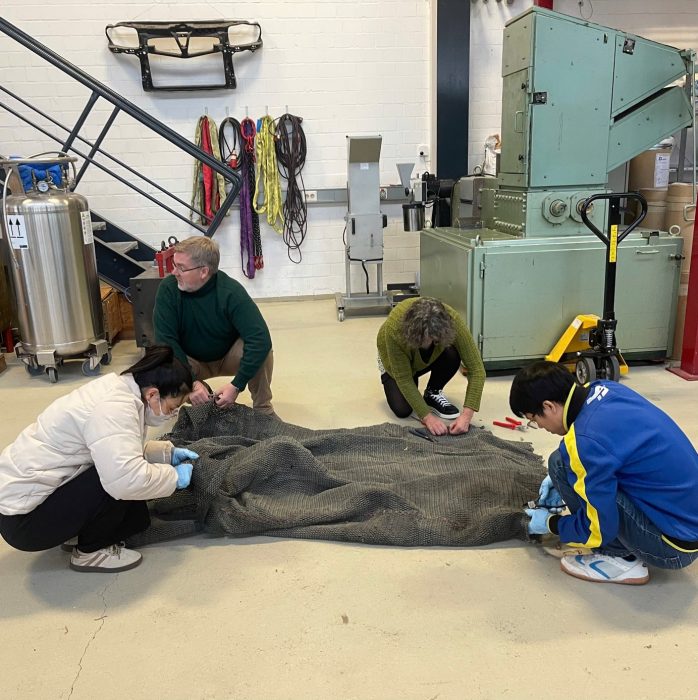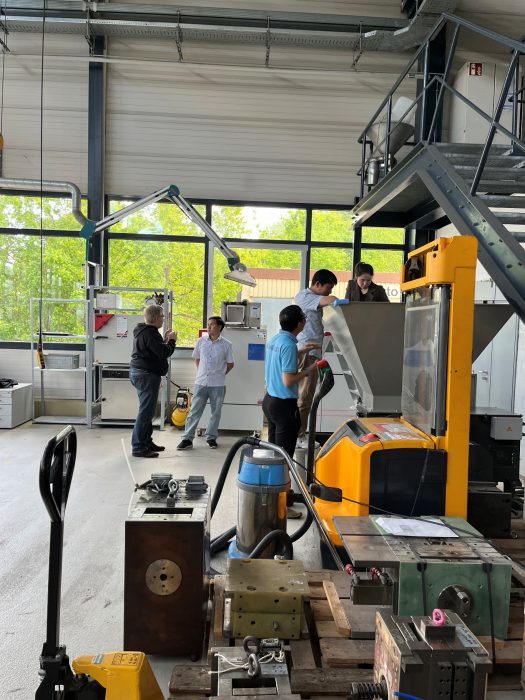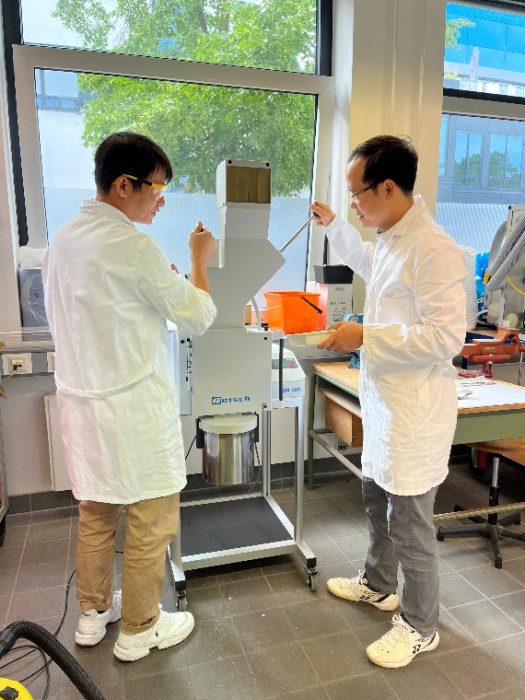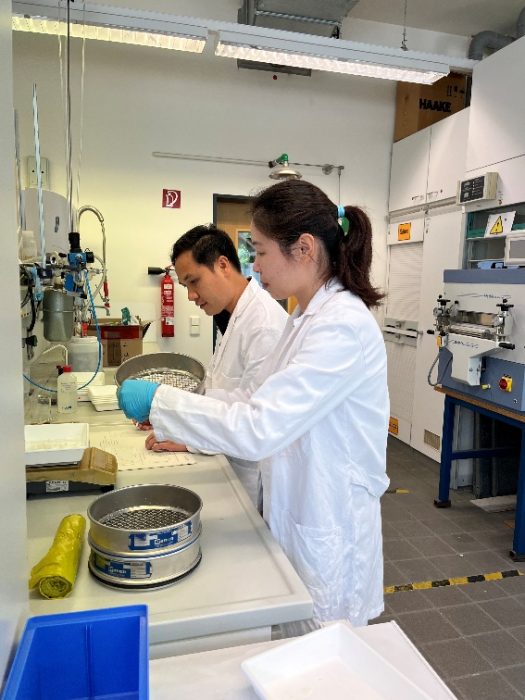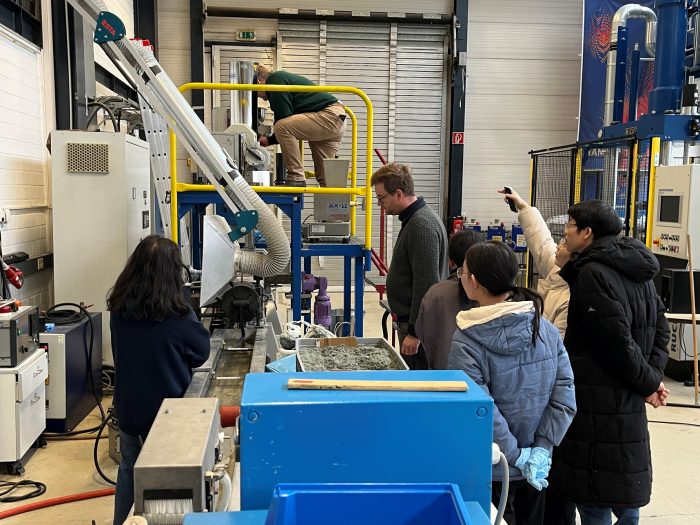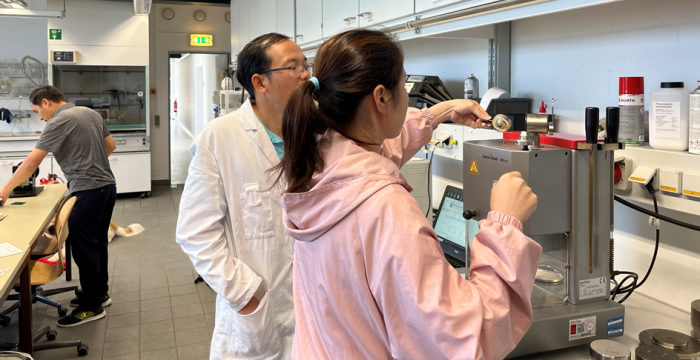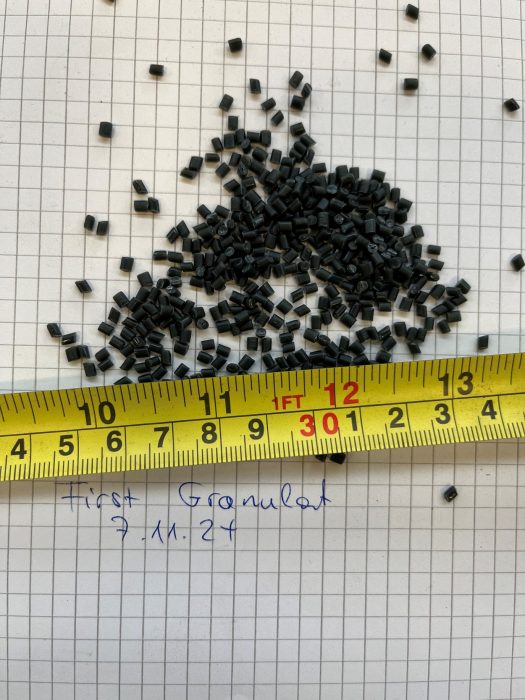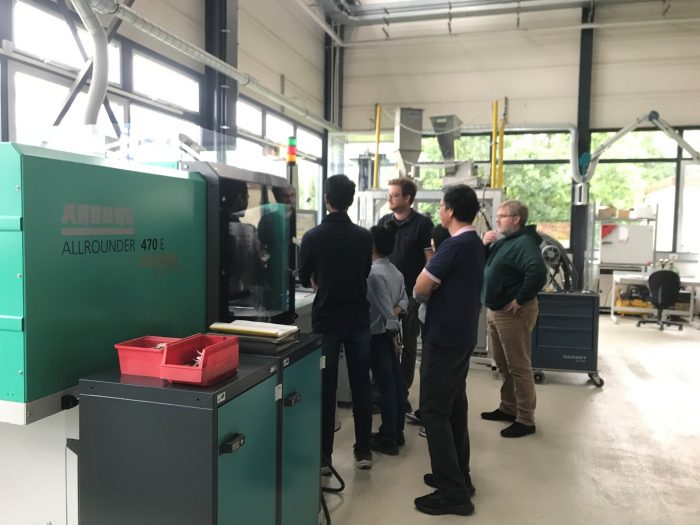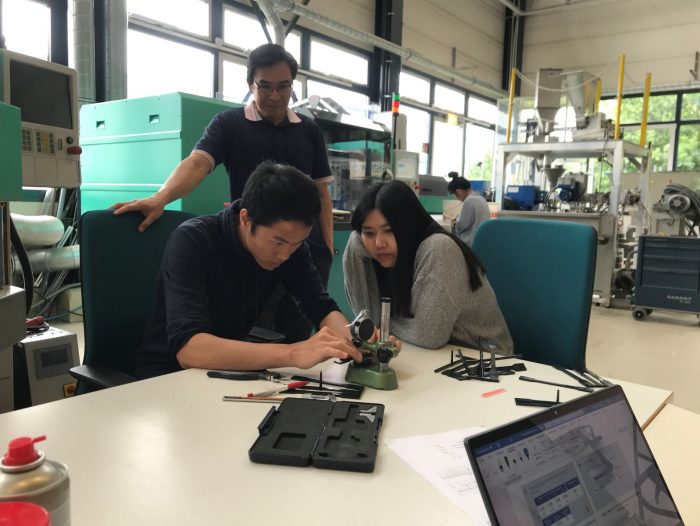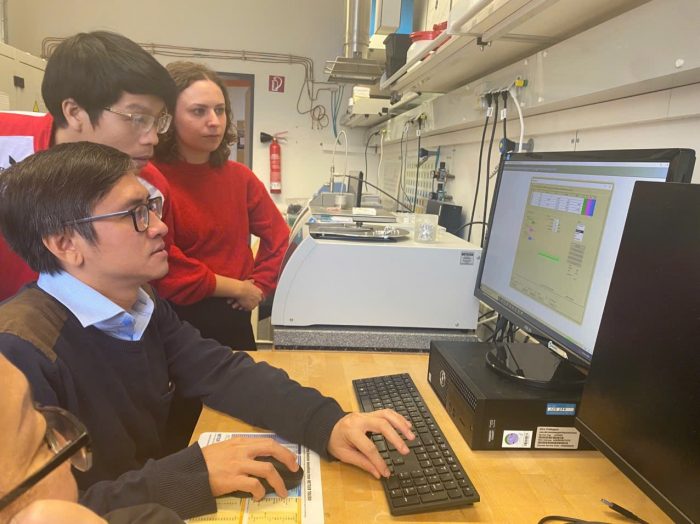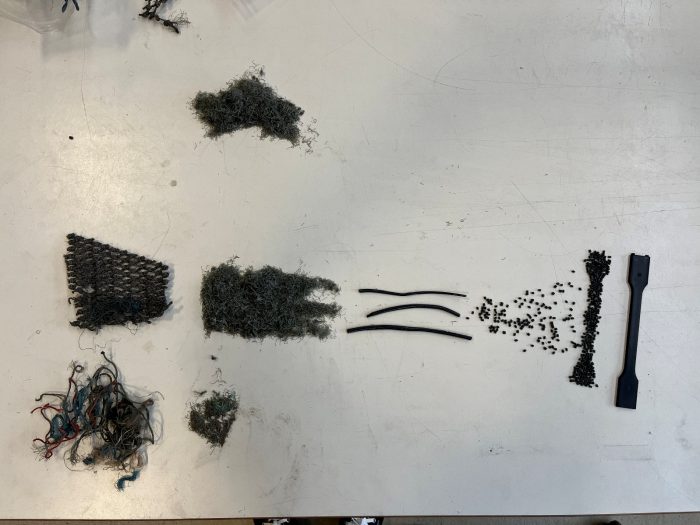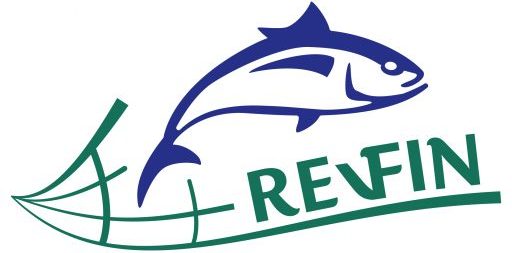In the Train-the-Trainer program, visiting researchers and students from Vietnam came to Germany to explore the entire recycling process step by step – from waste separation and simple plastic identification methods to extrusion, injection molding, and advanced material analyses. The idea: participants will later pass on this knowledge in Vietnam, helping to strengthen education and practice in the field of plastics recycling.
The mix of theory and hands-on work proved especially effective:
- Sorting exercises and visits to local recycling and reuse initiatives illustrated how waste management is organized in everyday practice.
- Using simple “home-lab” setups, participants carried out density tests, flammability checks, and basic chemical reactions to distinguish plastics without the need for expensive equipment.
- Technical modules demonstrated how discarded fishing nets can be shredded, processed into regranulate through extrusion, and shaped into standardized test specimens by injection molding. These samples were then analyzed for mechanical strength and long-term stability.
Along the way, small observations often sparked reflection. For example, noticing an illegally dumped pile of bulky waste opened a discussion on how such issues are handled differently in Germany and Vietnam. Another key moment was the visit to a second-hand shop, which made the role of reuse in extending product lifecycles more tangible.
Feedback from participants highlighted the practical transferability of the program:
“It was helpful to see how even simple methods can support reliable recycling steps – something we can realistically apply back home.”
Many also emphasized their motivation to share the content with colleagues and students in Vietnam, seeing the program as a catalyst for building local recycling structures.
In the end, REVFIN has shown that sustainability in plastics recycling does not depend solely on high-tech equipment. What matters is building the capacity of people to recognize, process, and assess materials – and to pass that knowledge forward. The collaboration between Germany and Vietnam has created a strong foundation for further training programs and long-term cooperation in circular economy research and practice.
